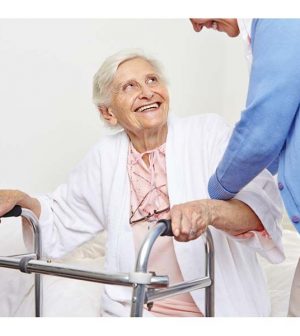- The Best Time of Day to Drink Bone Broth to Maximize Health Benefits
- 8 Ways to Increase Dopamine Naturally
- 7 Best Breads for Maintaining Stable Blood Sugar
- Gelatin vs. Collagen: Which is Best for Skin, Nails, and Joints?
- The Long-Term Effects of Daily Turmeric Supplements on Liver Health
- Could Your Grocery Store Meat Be Causing Recurring UTIs?
- Are You Making This Expensive Thermostat Error This Winter?
- Recognizing the Signs of Hypothyroidism
- 10 Strategies to Overcome Insomnia
- Could Artificial Sweeteners Be Aging the Brain Faster?
‘Non-Drug’ Approaches Can Fight Depression in People With Dementia

Exercise, mental stimulation and massage are among the drug-free therapies that are as good or better than medication in treating depression in dementia patients, researchers say.
They reviewed 256 studies that included a total of more than 28,000 people with dementia with or without major depression.
Medications alone were no more effective than usual care in treating depression in these patients. But 10 therapies were more effective than usual care, according to the study. It was published March 24 in the BMJ.
“Non-drug approaches were associated with a meaningful reduction in symptoms of depression in people with dementia and without a diagnosis of a major depressive disorder,” said researchers led by Jennifer Watt, of the division of geriatric medicine at the University of Toronto.
The beneficial therapies included: cognitive stimulation; exercise; reminiscence therapy (which helps people with dementia remember events, people and places from their lives); mental stimulation with a cholinesterase inhibitor (a drug used to treat dementia); and massage and touch therapy.
Other helpful therapies included multidisciplinary care; psychotherapy combined with reminiscence therapy and environmental modification; occupational therapy; exercise combined with social interaction and mental stimulation, and animal therapy.
Three of these approaches — massage and touch therapy, mental stimulation with a cholinesterase inhibitor, and mental stimulation combined with exercise and social interaction — were found to be more effective than some drugs, Watt and colleagues said in a journal news release.
The researchers said their findings suggest that doctors should use more drug-free methods to treat depression and loneliness in people with dementia.
The study had limitations, the researchers noted. For instance, it did not assess the severity of depression symptoms, the effects on different types of dementia, or the potential costs or harms of drug and non-drug interventions.
However, they said the study’s strengths included the large number of articles reviewed and use of a recognized clinical scale for symptoms of depression.
Health care providers, caregivers and patients all have a role in putting these findings into practice, according to the authors.
Of the 50 million people worldwide with dementia, about 16% also have diagnosed major depression, and 32% have symptoms of depression without a formal diagnosis, the researchers noted.
More information
The U.S. National Institute on Aging has more about dementia.
SOURCE: BMJ, news release, March 24, 2021
Source: HealthDay
Copyright © 2026 HealthDay. All rights reserved.










